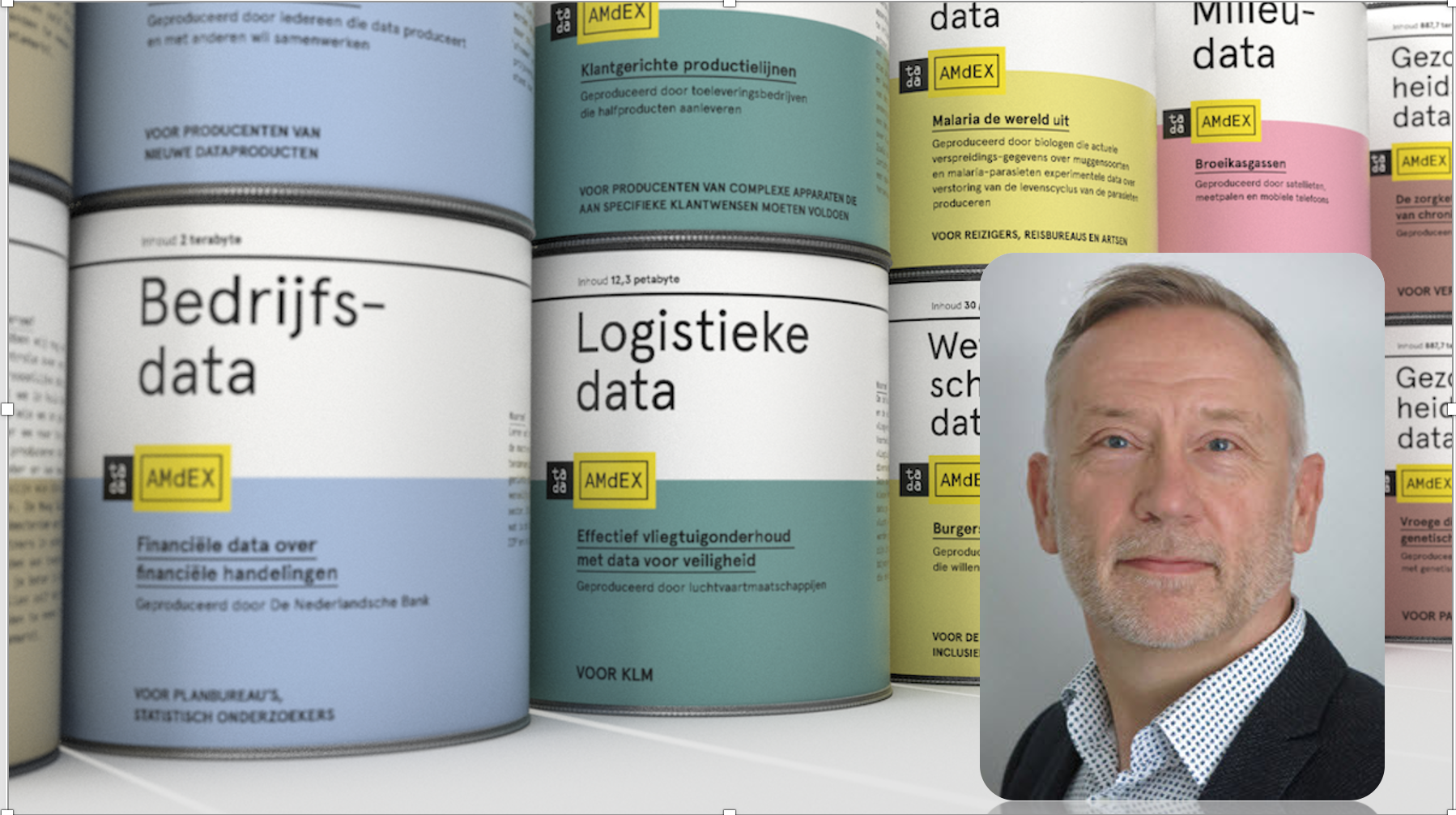Interview with Axel Berg, manager SURF Open Innovation Lab
Want to share data in a trusted way? AMdEX will soon offer a secure infrastructure for data. Axel Berg is one of the initiators of AMdEX: “We are really at the beginning of an implementation of data sovereignty.”
Worldwide, the amount of data is increasing exponentially. Yet we still share only a small portion of all our data for reuse by others. Due to concerns about ownership, IP, authorship or competition. Uncertainty about security, privacy and data ownership makes sharing trusted data expensive, inefficient and legally cumbersome. This causes organizations to not share their data, leaving a valuable part of all that information undisturbed. How to turn the tide? Parties are often willing – or even have a considerable interest in – making data accessible to others. They want to do that under suitable conditions and while remaining in control. That is exactly what AMdEX is working on: ensuring and giving substance to data sovereignty. Axel Berg is innovation manager of the SURF Open Innovation Lab. SURF is the ICT cooperative for education and research in the Netherlands.
How did your interest in data sharing arise?
“Our SURF cooperative has a branch at the Amsterdam Science Park: there are many different parties here, from scientific research institutions to companies specialized in ICT. Within the Science Park we wanted to join forces – in the context of the European Open Science Cloud (EOSC) – and in particular with the trusted sharing of data, one of the biggest challenges of today. A data exchange, in analogy to the Amsterdam Internet Exchange (AMS-IX) is a solution. We look at how best to share sensitive data between parties in a trusted way for a specific purpose only. This way we can remove many obstacles to data sharing.”
How do you do that?
“Everyone involved in AMdEX sees that less data is being shared than is possible. The common benefit you could get out of it is not exploited enough. AMdEX is a trusted environment in which a sector or community shares its data: collaborations are supported via the infrastructure and organization of the AMdEX. At SURF, we mainly look at collaboration between the public and private domain, such as between research institutes and companies, but also between research institutes themselves. That is the interesting thing about such an exchange: it is very broad and sharing data not only applies to researchers from academia, but also, for example, to companies.”
In that case, the AMdEX can be applied to any sector
“Yes, AMdEX facilitates several digital ‘marketplaces’ that can co-exist. Different data is shared on each marketplace and under different conditions.
One marketplace will have a more closed character than the other. Membership and policies must be defined and agreed upon. We are really at the beginning of a new development. Within AMdEX, the University of Amsterdam and SURF mainly focus on the sharing of research data (Research Data Exchange). We have built a prototype, which we are now developing and validating further within AMdEX.”
People like to be in control of their data
“That is precisely why you have to create a trusted environment, on neutral ground and on a non-profit basis. By making legal agreements and enforcing technically certain rules. Because the owner of data often wants to share his data, but only under certain conditions. When using large commercial cloud platforms, there is quickly a fear that such a platform will do something with your data after all. Data is shared more easily when you keep control over it and know what the other person is going to do with it. If you are able to facilitate such a trusted environment – a neutral, non-profit place – then a lot of parties can share their data, under their own conditions. That is exactly what data sovereignty is: the data owner retains desired control at all times over which data is shared with whom, for what purpose, and under what conditions. Then the thresholds will be lower, there will be more economic, social or scientific activity and the potential of all that data will be used much better.”
Where should the AMdEX be in two years?
“AMdEX is now starting concrete experiments based on suitable usecases. We process these usecases in prototypes with existing service components. We will use this to further develop the infrastructure in co-creation and testing in practice. We do this together with the AMdEX partners, but especially with many other (regional, national and international) interested parties, stakeholders and projects. Within two years this should lead to a (federated) infrastructure with basic functionality to facilitate data markets via a number of different data sharing concepts (archetypes). This infrastructure will be prepared for further scaling up in numbers of users and additional functionality. At SURF, we see an increasing demand for these types of solutions and we are actively participating in their development.”
This article is an update of an interview by Renske Jonkman, which appeared on amsterdameconomicboard.com in September 2019.







